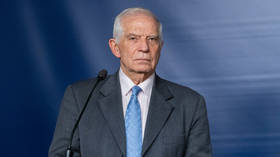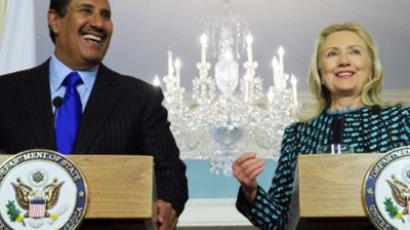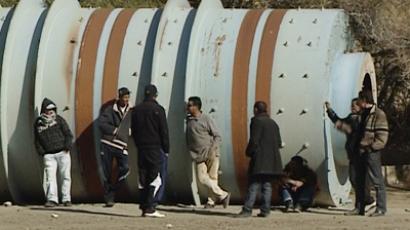Arab spring: 'Western-backed exported Islamist revolution’
The string of uprisings in the Arab world boils down to Saudi Arabia and Qatar using money and influence to hijack public dissent and bring Sunni Islamists to power, says John R. Bradley, British author and expert on the Middle East.
He argues that the turbulence that saw several governments overthrown in 2011 came from sectarian divide among Muslims, which the West played on, to support its own allies.“What we’re seeing is a Sunni-Shiite divide reemerge in the Middle East with Washington clearly backing the Sunni powerhouse Saudi Arabia, a close American ally. And Saudi Arabia in turn along with Qatar has taken control of the revolutions elsewhere.“For example it’s funding the Ennahda, the main Islamist party in Tunisia. The Muslim Brotherhood and more extremist Salafi groups in Egypt on the record were saying they received substantial funds from Saudi Arabia. The Yemeni government has openly criticized Qatar for interfering in its internal affairs and funding radical Islamists. And of course in Syria the main civilian opposition is dominated by the Muslim Brotherhood, and the so-called Free Syrian Army is dominated by not only radical jihadists from within Syria, but also by jihadists from throughout the region,” the expert told RT.Bradley has little doubt that citizens of the countries hit by the Arab Spring had reason to criticize their authorities, but contrary to western audiences’ beliefs, the lack of political rights was far from being the most important factor.“The motivation for these revolutions was economic. In Tunisia for example it started with the impoverished and neglected deep south. In Syria it started in Daraa, a city near Jordan, which has been experiencing drought for three years. And in Egypt an extensive opinion poll carried out among those who went to Tahrir just after Mubarak fell showed that only 19 per cent of them put free and fair election and free expression and so on, on top of their agenda. The main priority for 65 percent was the economy,” he said.People more concerned with a power grab than improving lives were quick to seize the opportunity, Bradley explains.“Now the people who provoked these revolutions foolishly declared their revolutions leaderless and they didn’t have an agenda. Anyone who knows anything about revolutionary uprisings in the past… knows that what happens in the post-revolutionary chaos is that the groups that are most disciplined and most ruthless politically then fill the vacuum. When you couple that with the funding that we were talking about from Saudi Arabia and Qatar, able to manipulate the electoral process, they were perfectly poised to step into the gap and fill the vacuum and that’s what they’ve done,” he says.














